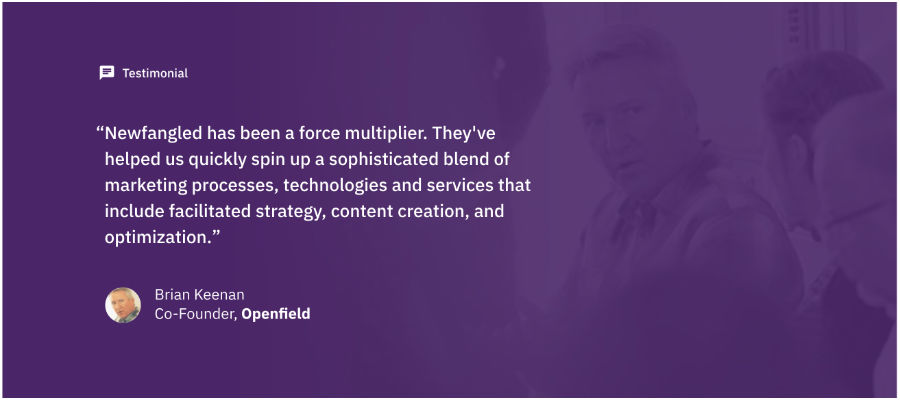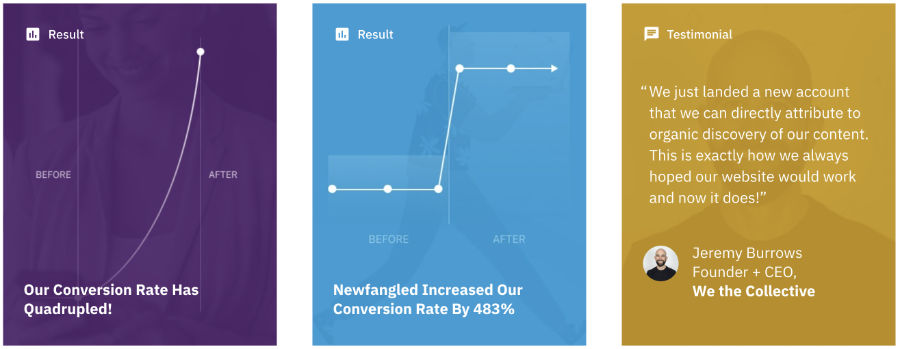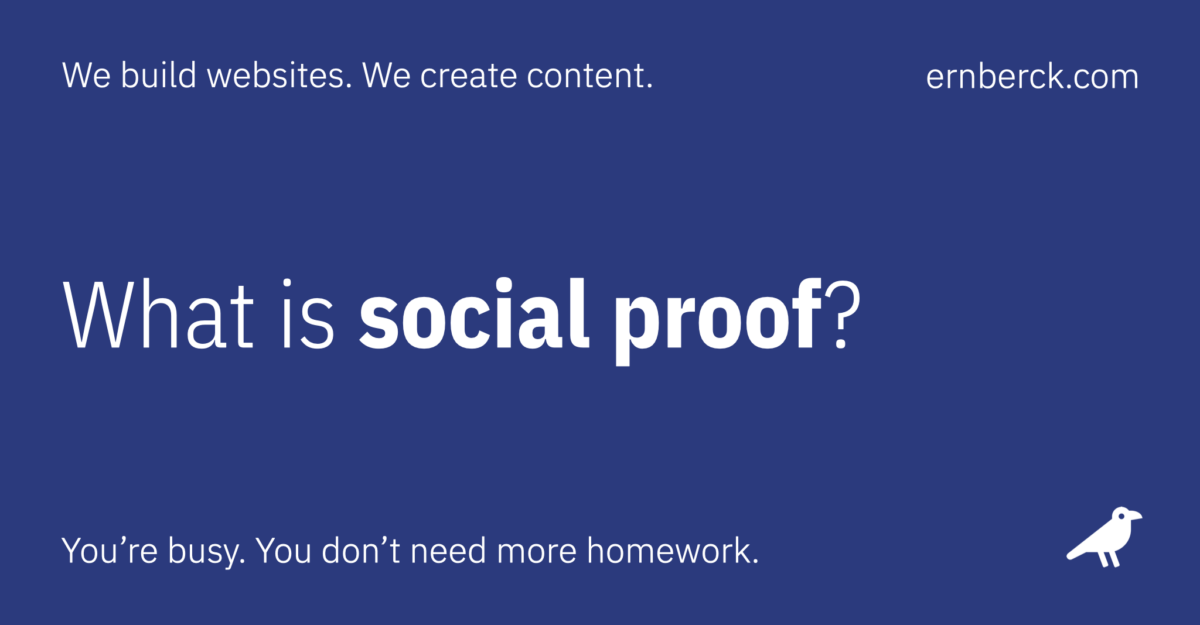Ever wonder why we tend to follow the crowd? Why do we often choose to do what others are doing, or buy products that other people have recommended? Why do we behave like sheep? The answer lies in social proof, a powerful psychological phenomenon that shapes our decisions and behaviors.
What is social proof?
Social proof is a concept that describes how people tend to conform to the actions and opinions of others in their social group. It’s the herd mentality that we often see in society — where people blindly follow what others are doing because they think it’s the right thing to do.
In other words, social proof is the tendency for people to assume that the actions of others reflect correct behavior or beliefs. And it can take many forms, including the conduct of complete strangers in public settings.
Because people are more likely to trust and purchase stuff that is recommended by others — or have “high” social proof — it’s often used as a marketing tactic to influence consumer behavior and increase sales.
Social proof is everywhere
Examples of social proof can be seen almost everywhere. For instance, when you see a long line at a restaurant, you might assume that the food is good and worth the wait because so many others are willing to stand in line for it.
In addition, online reviews and ratings are another form of social proof. When shopping online, many people rely on product ratings to make “informed” purchasing decisions, assuming that the experiences of others will be indicative of their own.
From the clothes we wear to the food we eat, we’re constantly influenced by the actions and opinions of others. Here are some more examples of social proof in everyday life:

The history of social proof
The term “social proof” was first introduced by psychologist Robert Cialdini (see below) in his 1984 book, Influence: The Psychology of Persuasion. In his book, Cialdini explains that people are more likely to conform to the actions of others when they’re uncertain about what to do. He suggested that this phenomenon could be used as a persuasive tool in marketing and advertising (he was right).
Cialdini’s book has become a classic in the field of psychology and has been widely cited in literature and the media. The concept of social proof has since become an important part of social psychology, as well as a key component of many marketing and advertising campaigns.
Contrary to popular belief — or what Mark Zuckerberg might think — social proof is not specific to social media. The phenomenon, in which people are influenced by the actions and opinions of others, applies to a wide variety of social situations and channels, online and off.
That said, websites and social media have certainly amplified the impact of social proof, as people can easily see and share information about products and services with their friends and networks. This leads to the potential for greater social influence and persuasion.

Who is Robert Cialdini?
Robert Cialdini (b. 1945) is an American psychologist and academic. He is the Regents’ Professor Emeritus of Psychology and Marketing at Arizona State University and was a visiting professor of marketing, business, and psychology at Stanford University.
He is best known for his 1984 book Influence: The Psychology of Persuasion. It was based on three “undercover” years applying for jobs and training at used car dealerships, fund-raising organizations, and telemarketing firms — Where he observed real-life situations of persuasion.
Cialdini found that influence is based on six key principles:
- Reciprocity
- Commitment and consistency
- Social proof
- Authority
- Liking
- Scarcity
The book has sold over five million copies, has been translated into 41 languages, and has been listed on the New York Times Best Sellers list.
Social proof online
As noted above, social proof is often used to influence consumer behavior and increase engagement on websites and social media platforms. Here are some common ways that it’s implemented:
01. Followers and likes
Social media users often use the number of followers and likes on their posts as a form of social proof. A popular member with a large following is often seen as more credible and influential than one with fewer followers and likes.
02. Influencer marketing
Social media “influencers” are often used to promote products and services to their followers. The assumption being that their followers will be influenced by their endorsement and buy something.
03. User-generated content
Companies will often share user-generated content (UGC) on their websites and social media pages to showcase their products or services in action. UGC is a powerful form of social proof because it demonstrates that others are using and enjoying the product or service.
04. Testimonials and reviews
Social media users will often share testimonials and reviews of products or services, which can be a powerful form of social proof for potential customers. Whether or not ratings, reviews, and testimonials are relevant and reliable has been debated for years.
05. Case studies
A case study is a lengthy, in-depth analysis of the product or service you provided to a recent customer. They’re often used for promoting business-to-business (B2B) and agency services. Case studies can be a pain to create and maintain, and I seriously doubt that many people read them.
06. Trust icons
Closely related to “logo bars” that brag about current relationships, trust icons often claim an affiliation or certification of some sort. Examples include Better Business Bureau or Chamber of Commerce logos in website footers.
07. Statistics
These are commonly displayed by website widgets that show the number of customers served, years of experience, websites built, cups of coffee consumed, whatever. The most annoying ones are animated.
08. Social media advertising
Social media advertising often relies on social proof to persuade potential customers to make a purchase. For example, an ad might showcase the number of likes, shares, or positive reviews that a product has received.
Overall, social proof plays an important role in online marketing. Used properly, it can be a powerful way to influence customer behavior and increase engagement on websites and social media platforms.

How social proof influences our behavior
Social proof can impact our behavior and decision-making in a number of ways. Here are a few examples:
The psychology behind social proof
The psychology behind social proof is rooted in the concept of social identity theory. According to this idea, people have a natural tendency to identify with — and conform to — the norms of their social group.
This desire for social acceptance and belonging can be a powerful motivator to trust the opinions of people we know and respect. In other words, social proof works because humans are social creatures.
Also, social proof can provide us with valuable information about the world around us. When we see other people engaging in a behavior, we may assume that it’s safe and acceptable (even when it’s not).
Types of social proof
There are several types of social proof that businesses can integrate with their marketing strategies. Here are a few examples:

Social proof for your business
Building social proof for your business can be a powerful way to attract new customers and increase brand awareness. Here are a few tips:
01. Encourage customer reviews
Positive reviews and testimonials from satisfied customers can be a powerful form of social proof. Encourage your customers to leave reviews on your website, social media pages, Google Reviews, or other third-party review sites like Yelp.
02. Use influencer marketing
Working with social media influencers who have a large following can be a great way to build social proof for your brand. Influencers can promote your products or services to their followers, and their endorsement can help to build trust and credibility with potential customers.
03. Leverage social media
Social media can be a powerful tool for building social proof. Share customer testimonials, highlight positive reviews, and showcase your products or services on your social media pages.
04. Show off your credentials
When used with taste and discretion (see below), displaying industry awards, certifications, or other credentials can be a good way to build social proof and demonstrate your expertise in your field.

Best of the Web 2023!
Anybody can put an official-looking badge or seal in their website footer and claim that they’re preferred, approved, certified, verified, award-winning, or whatever. A lot of these “badges of excellence” look pretty cheesy, and can reflect poorly on your business. We suggest going easy on this technique.
Limitations of social proof
This wouldn’t be a complete discussion without mentioning some limitations and drawbacks to using social proof. For example, social proof can sometimes lead to groupthink, where individuals conform to the actions of others without critically evaluating their own beliefs or preferences. Also, social proof can be heavily biased, as people are more likely to be influenced by those who they perceive as similar to themselves.
To avoid the pitfalls of relying too heavily on social proof, it’s important to use it in conjunction with other forms of information and decision-making strategies. For example, individuals should critically evaluate online reviews and ratings, and companies should be transparent about their use of social proof in marketing.
Remember that social proof is not always an accurate reflection of reality, and that individuals should be willing to challenge the status quo and think for themselves.
Ethical considerations of using social proof
Before you get all excited about using social proof in your marketing, please keep a few things in mind. For instance, companies may manipulate social proof by selectively highlighting positive reviews or paying for fake endorsements.
Also, the use of social proof can be seen as devious or coercive if it’s used to pressure people into conforming to a particular action or belief. While social proof can be an effective component of an online marketing strategy, here are some ethical factors that should be taken into account:
01. Accuracy of the information
It’s important to make sure that the information being presented as social proof is accurate and truthful. If the information is exaggerated or misleading, it can harm the trust between the brand and its customers.
02. Privacy concerns
Using social proof can sometimes involve sharing personal information about customers without their consent. This can be a violation of privacy, and companies must ensure they have the necessary permissions before sharing any information.
03. Influence on consumer behavior
Social proof can create a powerful sense of urgency and pressure on customers to make a purchase. Be careful not to exploit this psychological force to get customers to buy stuff they don’t need or can’t afford.
04. Diversity and inclusivity
Sometimes social proof can inadvertently promote stereotypes or exclude certain groups of people. It’s important to ensure that the social proof used is diverse and inclusive — And that it represents a wide range of customer experiences.
05. Transparency
Businesses should be transparent about the sources of their social proof, whether it is from real customers or paid influencers. You should also be clear about any incentives or compensation provided to individuals who provide social proof.

The future of social proof
Social proof is likely to continue to play an important role in society. With the rise of social media and the increasing reliance on reviews and ratings, social proof is likely to have an even greater impact on consumer behavior.
Unfortunately, there are also mounting concerns about the reliability of online reviews and the potential for manipulation and fake endorsements. Some recent studies have suggested that over 60% of online reviews are fake.
Summary
Social proof is a powerful psychological phenomenon that influences behavior in many areas of modern society. While it can be used effectively in marketing and other areas, it is important to be aware of the potential ethical considerations and ensure that social proof is not used in a manipulative or coercive way.
Companies must balance the benefits of using social proof with the moral issues involved. By being transparent, truthful, and inclusive, you can use social proof to enhance your marketing efforts, while still maintaining the trust of your customers.
Related
- A Facebook page is not a website
- How to promote your website
- The truth about social media engagement
